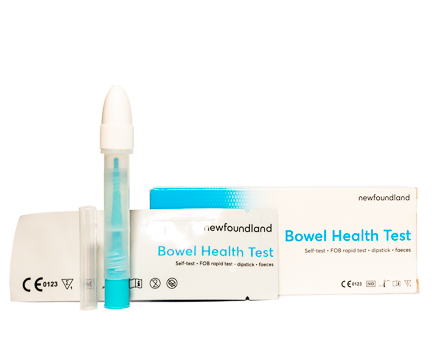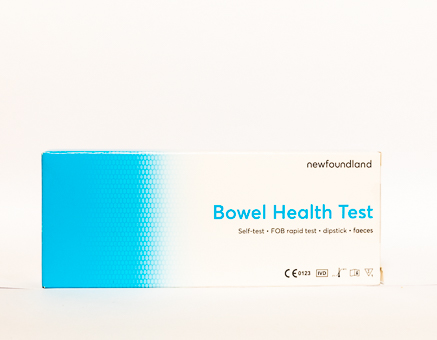Other Options Include
Bowel Cancer
The exact cause of bowel cancer still remains unknown. However, through research, there are close links with several factors that play a role in increasing the chances of getting bowel cancer.
Factors include:
If you have a family history of the disease
High consumption of red and processed meats - research found that an estimation of around 13/100 of bowel cancer studies in the UK are linked to these meats (Cancer Research UK)
Obesity or being overweight
High consumption of alcohol
Smoking
Age - 9 out of ten of those who are diagnosed with bowel cancer are older adults over the age of 50 (NHS)
Bowel cancer will start to develop from the inner lining of the bowel where a bundle of cells called polyps will start to grow. The most common symptoms of bowel cancer are:
A continuous chance in your bowel habit - this can range from diarrhoea, constipation or a chance of consistency with looser, runnier stool
Abdominal bloating or pain
Blood in your stool without other symptoms of haemorrhoids
Weight loss
Pain in your anus or rectum
Unexpected fatigue
If left undiagnosed, especially if you experience any of the symptoms, it can spread to lymph nodes in the area and may travel to the liver or lungs.
Bowel Health Test
As bowel cancer can cause hidden blood in the faeces, a detection of faecal occult blood (FOB) can be detected using a sample of your faeces when taking the test. This test is an easy and straightforward procedure, providing you whether you are positive or negative. The test can also be done at home and does not require for your sample to be tested by a lab, which ensures a quicker turnaround time for results.
FAQ
Whats included in the test kit?
Dipstick test
Specimen collection tube with extraction buffer
Reaction tube
Stool catcher
Precautions
Make sure to read all the information in the package before performing the test.
Do not use it after the expiration date.
Do not open the sealed pouch until use.
Store in a cool, dry area at 2-30â. Do not freeze.
Specimens should not be collected during or within three days of a menstrual period or if you suffer from bleeding haemorrhoids or blood in the urine.
Alcohol,aspirin and other medication taken in excess may cause gastrointestinal irritation resulting in occult bleeding such substances should be discontinued at least 48 hours prior to testing.
Instructions
The stool specimen should be collected in the stool catcher. It is important to use the stool catcher in all sorts of toilets to avoid contamination of the specimen with any kind of chemicals, so that no adulterations of the specimen occur.
To process faecal specimens:
Unscrew the cap of the specimen collection tube then randomly stab the specimen collection applicator into the faecal specimen in at least 3 different sites. Do not scoop the faecal specimen.
Screw on and tighten the cap onto the specimen collection tube, then shake the specimen collection tube vigorously to mix the specimen and the extraction buffer
.
Remove the test from the foil pouch and use it as soon as possible. Best results will be obtained if the test is performed immediately after opening the foil pouch.
Fix the reaction tube, hold the specimen collection tube upright and break off the tip of the specimen collection tube. Invert the specimen collection tube and transfer 8-10 full drops of the extracted specimen (approx. 500μL) to the reaction tube, then with arrows pointing toward the extraction buffer, immerse the dipstick and start the timer. Do not immerse the dipstick past the maximum line.
Read the results in 5 minutes. Do not read the results after 10 minutes.
Reading the results
POSITIVE - Two colour lines are visible - One line on control (C) marker and one line of test (T) marker.
NEGATIVE - Only one coloured line is visible - One line on the control (C) marker but no line on the test (T) marker.
INVALID - No visible marker lines present or only one line on the test (T) marker. This can suggest there was insufficient specimen volume or that the test was not taken correctly.
Make sure to read the instructions over again and repeat with a new test.




